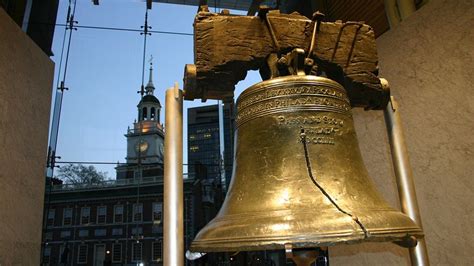
The concept of liberty has been a subject of profound philosophical debate and societal struggle for centuries. It is a fundamental ideal that lies at the core of democratic societies, emphasizing individual rights and freedoms while also recognizing the responsibilities that come with living in a communal setting. However, the distinction between liberty and freedom, as well as the historical perspectives and legal interpretations surrounding these concepts, continue to shape our understanding of what it means to be truly free. We will look at the complexities of liberty and freedom, exploring why progress in this area remains elusive despite ongoing efforts to uphold and protect individual rights.
The Distinction Between Liberty and Freedom
The nuanced differences between liberty and freedom have sparked ongoing discussions among scholars, policymakers, and the general public. While liberty often highlights individual rights and the limitations of government power, freedom is more broadly associated with the ability of individuals to act as they choose. This distinction has become increasingly relevant in contemporary political and social discourse, especially as societies grapple with issues relating to personal autonomy, societal norms, and governmental intervention.
The study of liberty and freedom through their representations in American history reveals a rich tapestry of evolving ideals and values. From the American Revolution to modern-day debates, these concepts have played a pivotal role in shaping the nation’s cultural and political landscape. The exploration of several hundreds of visions, images, and symbols associated with liberty and freedom underscores the enduring legacy of these ideals in American society, while also highlighting the ongoing struggles to reconcile conflicting interpretations and perspectives.
From a legal standpoint, liberty is often defined as “freedom from arbitrary and unreasonable restraint upon an individual,” as outlined by the Legal Information Institute. This definition underscores the ongoing legal battles and debates surrounding the protection of individual liberties under the U.S. Constitution. Supreme Court decisions, particularly those addressing issues of privacy, speech, and bodily autonomy, have significantly shaped the understanding of liberty within the legal framework, illustrating the complex interplay between individual rights and governmental authority.
When the government strips citizens of their liberty, it undermines the very foundations of democratic society and the rule of law. The legal definition of liberty as “freedom from arbitrary and unreasonable restraint upon an individual” serves as a guiding principle in safeguarding individual rights against government overreach. Supreme Court decisions have played a crucial role in interpreting and upholding the protection of individual liberties enshrined in the U.S. Constitution. Cases addressing issues of privacy, speech, and bodily autonomy have underscored the delicate balance between individual rights and governmental authority within the legal framework. However, when government actions infringe upon these fundamental liberties, it leads to a erosion of trust in the institutions meant to uphold and protect the rights of the people. The repercussions of such actions can have far-reaching consequences, impacting not only the individuals directly affected but also the broader fabric of society as a whole. Ultimately, the stripping of citizens’ liberty by the government reflects a pivotal moment in the ongoing struggle to define and defend the principles of freedom and individual rights within a constitutional framework.
Historical Case Studies
The Suspension of Habeas Corpus during the Civil War
The suspension of the writ of habeas corpus by President Abraham Lincoln during the Civil War stands as a stark example of liberty being curtailed in the name of national security. This controversial decision allowed for the arrest and detention of individuals without immediate charge or trial, highlighting the tension between civil liberties and government power during times of crisis. The suspension of habeas corpus serves as a poignant reminder of the challenges inherent in balancing individual rights with the demands of national security.
Slavery and the Fight for Emancipation
The institution of slavery in the United States represents a profound denial of liberty and freedom for African Americans, who were subjected to forced labor, dehumanization, and legal disenfranchisement. The Emancipation Proclamation of 1863 marked a critical step towards the abolition of slavery, yet true freedom and equality for African Americans would require decades of struggle and sacrifice. The fight for emancipation underscores the enduring legacy of slavery as a historical injustice that continues to shape contemporary discussions on liberty and equality.
Civil Rights Movement and the Struggle for Racial Equality:
The Civil Rights Movement of the 1950s and 1960s sought to dismantle racial segregation and discrimination against African Americans, advocating for the recognition and protection of their constitutional rights. Leaders such as Martin Luther King Jr. and Rosa Parks spearheaded a nonviolent campaign for civil rights, leading to landmark legislative victories such as the Civil Rights Act of 1964 and the Voting Rights Act of 1965. These achievements helped dismantle legal barriers that had long prevented African Americans from exercising their fundamental liberties and rights, but challenges to racial equality persist to this day.
The quest for liberty remains a complex and multifaceted journey that continues to challenge societies around the world. The distinctions between liberty and freedom, the historical contexts that have shaped our understanding of these concepts, and the legal interpretations that govern the protection of individual rights all contribute to the ongoing debate on what it truly means to be free. While progress has been made in expanding civil liberties and rights, persistent challenges such as government overreach, systemic inequalities, and social injustices remind us that the pursuit of liberty is an ongoing endeavor that requires vigilance, courage, and collective action.
My aspiration in composing this concise treatise on liberty and freedom is to establish a foundational primer that will not only serve as a bridge to more extensive and continuous discourse on this imperative subject but also stimulate substantive debates and discussions within legislative bodies, academic institutions, and among the populace at large. It is my fervent hope that this endeavor will galvanize a deep-seated engagement and drive collective advancement on this significant matter. Only by confronting these challenges and upholding the principles of liberty and freedom can we hope to create a more just and equitable society for all.
Dr. Aaron Lewis, March 14, 2024
